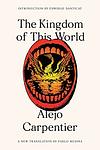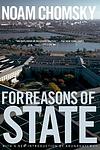Alejo Carpentier
Alejo Carpentier was a Cuban novelist, essayist, and musicologist who greatly influenced Latin American literature during its 'boom' period. Born on December 26, 1904, in Lausanne, Switzerland, he grew up in Havana, Cuba, and spent significant parts of his life in France and Venezuela. Carpentier is known for his baroque style and the incorporation of Latin American and Caribbean history and culture into his work. He is often associated with the literary concept of 'lo real maravilloso' (the marvelous real), which is a precursor to magical realism. His notable works include 'The Kingdom of this World' (El reino de este mundo) and 'The Lost Steps' (Los pasos perdidos). Carpentier passed away on April 24, 1980, in Paris, France.
Books
This list of books are ONLY the books that have been ranked on the lists that are aggregated on this site. This is not a comprehensive list of all books by this author.
-
1. The Kingdom of This World
"The Kingdom of This World" is a historical novel that explores the tumultuous period of the Haitian Revolution and its aftermath through the eyes of a slave named Ti Noël. The narrative weaves together elements of magical realism and historical fact, highlighting the brutalities of slavery, the struggle for freedom, and the rise and fall of leaders. The novel also delves into the themes of power, corruption, and the cyclical nature of history, while showcasing the rich culture and folklore of Haiti.
-
2. The Lost Steps
The novel tells the story of a disillusioned American musicologist who leaves his life in New York City to embark on a journey to an untouched, primitive part of the Amazon jungle in South America. He is in search of ancient musical instruments. Along the way, he experiences a spiritual and philosophical transformation as he reconnects with nature and the primal roots of humanity. He also falls in love with a native woman, further deepening his connection to the land and its people.
-
3. Explosion In A Cathedral
The novel is a historical narrative set in the Caribbean during the time of the French Revolution, following the lives of a family caught in the tumult of the era. It explores the impact of European political upheaval on the colonies, as the protagonist becomes involved with historical figures and events, including the revolutionary missions of Victor Hugues. The story delves into themes of power, freedom, and the complex interplay between history and the individuals who live through it, painting a vivid picture of the colonial world and its transformation under the forces of revolution and counterrevolution.
-
4. Reasons Of State
"Reasons of State" is a satirical novel that delves into the life of a Latin American dictator who clings to power through manipulation and the ruthless suppression of opposition. Set against the backdrop of early 20th-century political turmoil, the narrative explores themes of corruption, decadence, and the absurdity of authoritarian regimes. The protagonist, a caricature of the archetypal tyrant, navigates through a series of farcical and tragic events, revealing the hollow core of his regime's pomp and circumstance. The novel critiques the self-serving justifications of those in power, who often cloak their actions under the guise of state necessity and progress, while their personal and political decisions lead to the suffering and disenfranchisement of the people they rule.



